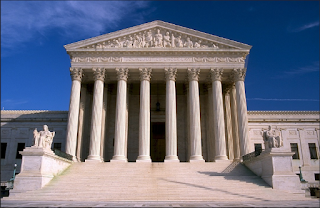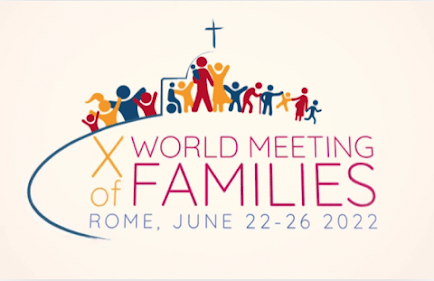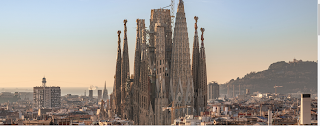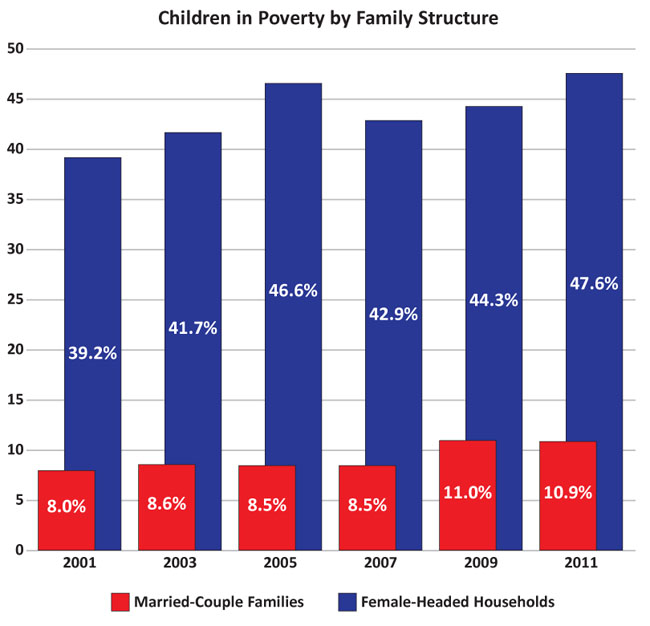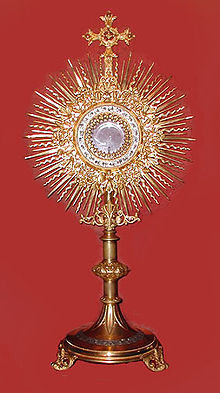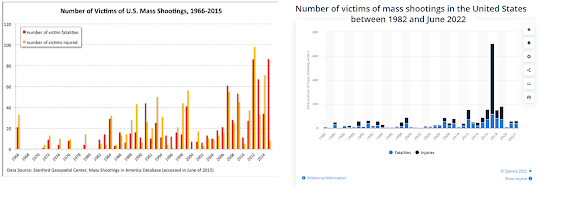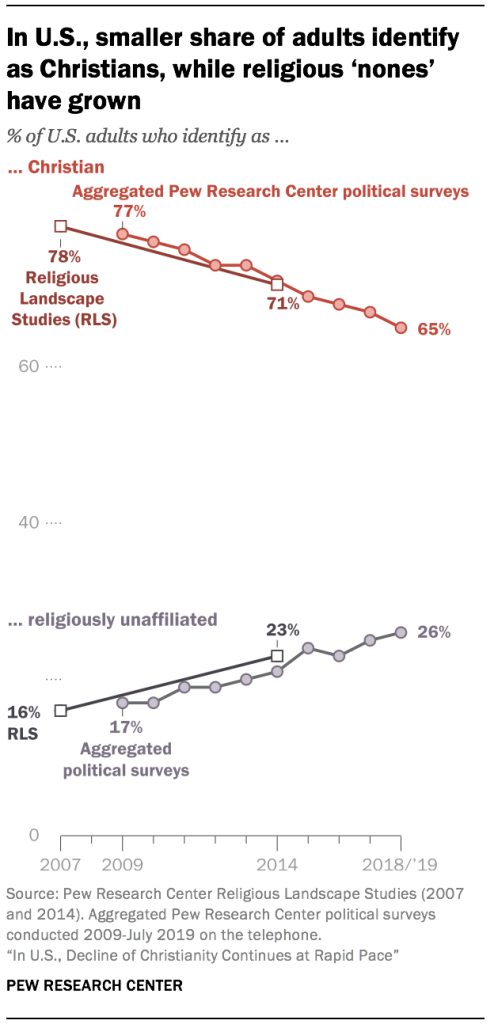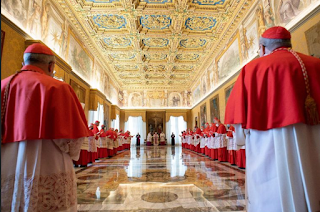Analysis: Fittingly, as we celebrate the Holy Trinity, according to the media, the Holy Spirit has left the Catholic Church. The Church is in crisis with disobedient, boisterous, pro-abortion, pro-LGBT taking over and Pope Francis committing the unpardonable sin!
And this is not just the mainstream media, but also ETWN's own National Catholic Register (NCR.). EWTN News, Inc. is the world's largest Catholic news organization, comprised of television, radio, print and digital media outlets.
In the Synod on Synodality, the entire Church has been called to discern how the Spirit is moving through and with the Body of Christ — inside and outside the Church, so that we may continue to fulfill our mission to evangelize in the world."He used the same image of the Holy Spirit as an agent of disorder when addressing the Catholic-Anglican ecumenical commission on May 13: “The Holy Spirit is the one who creates ‘disorder’ — we can think of the morning of Pentecost — but then the one who creates harmony.” In that same address he spoke of an Anglican contribution to the synodal process for the synod on synodality. “As you know, the Catholic Church has inaugurated a synodal process: For this common journey to be truly such, the contribution of the Anglican Communion cannot be lacking,” Pope Francis said. “We look upon you as valued traveling companions.” All of which raises an interesting perspective on the synodal process. What if the walking together results in a walking apart? Should we expect divisions and harmony, divisions without harmony or harmony without divisions?" as described by NCR.
"John Paul also may have hoped that pastoral experience would modify the views of Carlo Maria Martini, who had been an academic until his appointment to Milan. That didn’t quite work out.” Indeed, John Paul has received considerable criticism for his mixed record in this area, as some of his choices provided lackluster leadership" Desmond added.
Without question, Pope Francis' elevation of San Diego bishop Robert McElroy has created shockwaves among the media. While bishop McElroy has been among the most vocal champions of Pope Francis’ pastoral agenda among the U.S. hierarchy, frequently echoing the pope’s prioritization of environmental concerns, migration and a more welcoming approach to LGBTQ persons. I’m in favor of it,” McElroy told NCR at the time on the question of women deacons. “My view on it is [that] women should be invited into every ministry or activity we have that’s not doctrinally precluded,” he said.
McElroy’s selection by Francis also comes at a time when the U.S. church has been roiled by debates over whether pro-choice Catholic politicians should be denied Communion, most recently led by Archbishop Salvatore Cordielone of San Francisco, California who last month
announced he would bar U.S. Speaker of the House Nancy Pelosi from receiving the sacrament. McElroy, by contrast, has warned against the
“weaponization” of the Eucharist for political ends.
Clearly the last straw for the media and Vatican critics is Pope Francis' last attribute of the Holy Spirit as he described it in his Pentecost Homily: "And finally, oddly, the Holy Spirit is the author of division, of ruckus, of a certain disorder. Think of the morning of Pentecost: he is the author… he creates division of languages and attitudes… it was a ruckus, that! Yet at the same time, he is the author of harmony. He divides with the variety of charisms, but it is a false division, because true division is part of harmony. He creates division with charisms and he creates harmony with all this division. This is the richness of the Church." This is the heretical passage! Even though Jesus said something similar in Matthew 10:35 " For I have come to set a man against his father, and a daughter against her mother, and a daughter-in-law against her mother-in-law" We recall that many people, including his disciples, believed the Messiah's arrival would immediately bring a new age of peace and prosperity to Israel. Jesus, though, never taught this. Instead, He warned that His arrival on earth would bring a new era of division and belief in Him would become a dividing line between Gentiles.
Pope Francis is accused as committing the unpardonable sin because of the way he described another attribute of the Holy Spirt in the penultima paragraph of his homily: "And finally, oddly, the Holy Spirit is the author of division, of ruckus, of a certain disorder. Think of the morning of Pentecost: he is the author… he creates division of languages and attitudes… it was a ruckus, that! Yet at the same time, he is the author of harmony. He divides with the variety of charisms, but it is a false division, because true division is part of harmony. He creates division with charisms and he creates harmony with all this division. This is the richness of the Church." Despite the fact that charisms, is by definition "gifts of grace" (charismata), described by St. Paul as gratuitous blessings of an extraordinary and transitory nature conferred directly for the good of others. Indirectly they may also benefit the one who possesses the charisms, but their immediate purpose is for the spiritual welfare of the Christian community and that the Pope's entire homily was dedicated to contrasting the works of the Holly Spirit to those of the Evil One:. Where the fruits of the Spirit are perfections that the Holy Spirit forms in us as the first fruits of eternal glory. Charity, joy, peace, patience, kindness, goodness, generosity, gentleness, faithfulness, modesty, self-control, chastity. An the seven gifts of the Holy Spirit are wisdom, understanding, counsel, fortitude, knowledge, piety, and fear of the Lord. While some Christians accept these as a definitive list of specific attributes, others understand them merely as examples of the Holy Spirit's work through the faithful.
Below is an excerpt of Pope Francis Homily describing the Holy Spirit:
Pope Francis Pentecost Homily Attributes of the Holy Spirit: Excerpt
God does not want to make us encyclopedias or polymaths.
The Spirit makes us see everything in a new way, with the eyes of Jesus.
I would put it this way: in the great journey of life, the Spirit teaches us where to begin, what paths to take, and how to walk.
Jesus speaks of it in the first verse of the Gospel, when he says: “If you love me, you will keep my commandments” (v. 15). If you love me, you will keep ... this is the “logic” of the Spirit. We tend to think the exact opposite: if we keep the commandments, we will love Jesus. We tend to think that love comes from our keeping, our fidelity and our devotion. Yet the Spirit reminds us that without love as our basis, all the rest is in vain. And that love comes not so much from our abilities, but as his gift. He teaches us to love and we have to ask for this gift. The Spirit of love pours love into our hearts, he makes us feel loved and he teaches us how to love. He is the “motor” of our spiritual lives. He set it in motion within us. But if we do not begin from the Spirit, or with the Spirit or through the Spirit, we will get nowhere.
The Holy Spirit is an active memory; he constantly rekindles the love of God in our hearts. We have experienced his presence in the forgiveness of our sins, in moments when we are filled with his peace, his freedom and his consolation.
We always remember the things that go wrong; we listen to the voice within us that reminds us of our failures and failings, the voice that keeps saying: “Look, yet another failure, yet another disappointment. You will never succeed; you cannot do it.” This is a terrible thing to be told.
Yet the Holy Spirit tells us something completely different. He reminds us: “Have you fallen? You are a son or daughter of God. You are a unique, elect, precious and beloved child. Even when you lose confidence in yourself, God has confidence in you!” This is the “memory” of the Spirit, what the Spirit constantly reminds us: God knows you. You may forget about God, but he does not forget about you. He remembers you always.
You, however, may well object: these are nice words, but I have problems, hurts and worries that cannot be removed by facile words of comfort! Yet that is precisely where the Holy Spirit asks you to let him in. Because he, the Consoler, is the Spirit of healing, of resurrection, who can transform the hurts burning within you. He teaches us not to harbor the memory of all those people and situations that have hurt us, but to let him purify those memories by his presence. That is what he did with the apostles and their failures. They had deserted Jesus before the Passion; Peter had denied him; Paul had persecuted Christians. We too think of our own mistakes. How many of them, and so much guilt! Left to themselves, they had no way out. Left to themselves, no. But with the Comforter, yes. Because the Spirit heals memories. How? By putting at the top of the list the thing that really matters: the memory of God’s love, his loving gaze. In this way, he sets our lives in order. He teaches us to accept one another, to forgive one another and to forgive ourselves; he teaches us to be reconciled with the past. And to set out anew.
The Spirit teaches us what paths to take. We see this in the second reading, where Saint Paul explains that those “led by the Spirit of God” (Rom 8:14) “walk not according to the flesh but according to the Spirit” (v. 4). The Spirit, at every crossroads in our lives, suggests to us the best path to follow. It is important, then, to be able to distinguish his voice from the voice of the spirit of evil. Both speak to us: we need to learn to distinguish the voice of the Spirit, to be able to recognize that voice and follow its lead, to follow the things he tells us.
The Holy Spirit will never tell you that on your journey everything is going just fine. He will never tell you this, because it isn’t true. No, he corrects you; he makes you weep for your sins; he pushes you to change, to fight against your lies and deceptions, even when that calls for hard work, interior struggle and sacrifice. Whereas the evil spirit, on the contrary, pushes you to always do what you want, what you find pleasing. He makes you think that you have the right to use your freedom any way you want. Then, once you are left feeling empty inside – it is bad, this feeling of emptiness inside, many of us have felt it – and when you are left feeling empty inside, he blames you and casts you down. He blames you, becomes the accuser. He throws you down, destroys you.
The Holy Spirit, correcting you along the way, never leaves you lying on the ground, never. He takes you by the hand, comforts you and constantly encourages you.
Whenever you feel troubled by bitterness, pessimism and negativity – how many times have we fallen into this! – then it is good to remember that these things never come from the Holy Spirit. Bitterness, pessimism, sad thoughts, these never come from the Holy Spirit. They come from evil, which is at home with negativity. It often uses this strategy: it stokes impatience and self-pity, and with self-pity the need to blame others for all our problems. It makes us edgy, suspicious, and querulous. Complaining is the language of the evil spirit; he wants to make you complain, to be gloomy, to put on a funeral face. The Holy Spirit on the other hand urges us never to lose heart and always to start over again. He always encourages you to get up. He takes you by the hand and says: “Get up!” How do we do that? By jumping right in, without waiting for someone else. And by spreading hope and joy, not complaints; never envying others, never -- envy is the door through which the evil spirit enters. The Bible tells us this: by the envy of the devil, evil entered the world. So never be envious! -- but the Holy Spirit brings you goodness; he leads you to rejoice in the success of others.
The Holy Spirit is practical, he is not an idealist. He wants us to concentrate on the here and now, because the time and place in which we find ourselves are themselves grace-filled. These are concrete times and places of grace, here and now. That is where the Holy Spirit is leading us. The spirit of evil, however, would pull us away from the here and now, and put us somewhere else. Often he anchors us to the past: to our regrets, our nostalgia, our disappointments. Or else he points us to the future, fueling our fears, illusions and false hopes. But not the Holy Spirit. The Spirit leads us to love, concretely, here and now, not an ideal world or an ideal Church, an ideal religious congregation, but the real ones, as they are, seen in broad light of day, with transparency and simplicity. How very different from the evil one, who foments gossip and idle chatter. Idle chatter is a nasty habit; it destroys a person’s identity.
The Holy Spirit wants us to be together; he makes us Church and today – here is the third and final aspect – he teaches the Church how to walk. The disciples were cowering in the Upper Room; the Spirit then came down and made them go forth. Without the Spirit, they were alone, by themselves, huddled together. With the Spirit, they were open to all. In every age, the Spirit overturns our preconceived notions and opens us to his newness. God, the Spirit, is always new! He constantly teaches the Church the vital importance of going forth, impelled to proclaim the Gospel. The importance of our being, not a secure sheepfold, but an open pasture where all can graze on God’s beauty. He teaches us to be an open house without walls of division. The worldly spirit drives us to concentrate on our own problems and interests, on our need to appear relevant, on our strenuous defense of the nation or group to which we belong. That is not the way of the Holy Spirit. He invites us to forget ourselves and to open our hearts to all. In that way, he makes the Church grow young. We need to remember this: the Spirit rejuvenates the Church. Not us and our efforts to dress her up a bit. For the Church cannot be “programmed” and every effort at “modernization” is not enough. The Spirit liberates us from obsession with emergencies. He beckons us to walk his paths, ever ancient and ever new, the paths of witness, poverty and mission, and in this way, he sets us free from ourselves and sends us forth into the world.
And finally, oddly, the Holy Spirit is the author of division, of ruckus, of a certain disorder. Think of the morning of Pentecost: he is the author… he creates division of languages and attitudes… it was a ruckus, that! Yet at the same time, he is the author of harmony. He divides with the variety of charisms, but it is a false division, because true division is part of harmony. He creates division with charisms and he creates harmony with all this division. This is the richness of the Church.
Brothers and sisters, let us sit at the school of the Holy Spirit, so that he can teach us all things. Let us invoke him each day, so that he can remind us to make God’s gaze upon us our starting point, to make decisions by listening to his voice, and to journey together as Church, docile to him and open to the world. Amen
While Desmond, NCR senior editor, Joan Frawley Desmond, characterizes Pope Francis' appointments as "personal All the media "reports" Criticizing Pope Francis used qualities attribute to the Evil One and not the Holly Spirit. Perhaps the Holy Spirit has left the Catholic Church. I would me remis if I said I agree with the elevation of Bishop Robert McElroy or the support of Father Martin.
RELATED
WTN'S Larry Chapp's Commentary supports my argument: The Holy Spirit Has Departed From the Holy Catholic Church
Media Analysis: The Holy Spirit Has Departed From the Catholic Church
